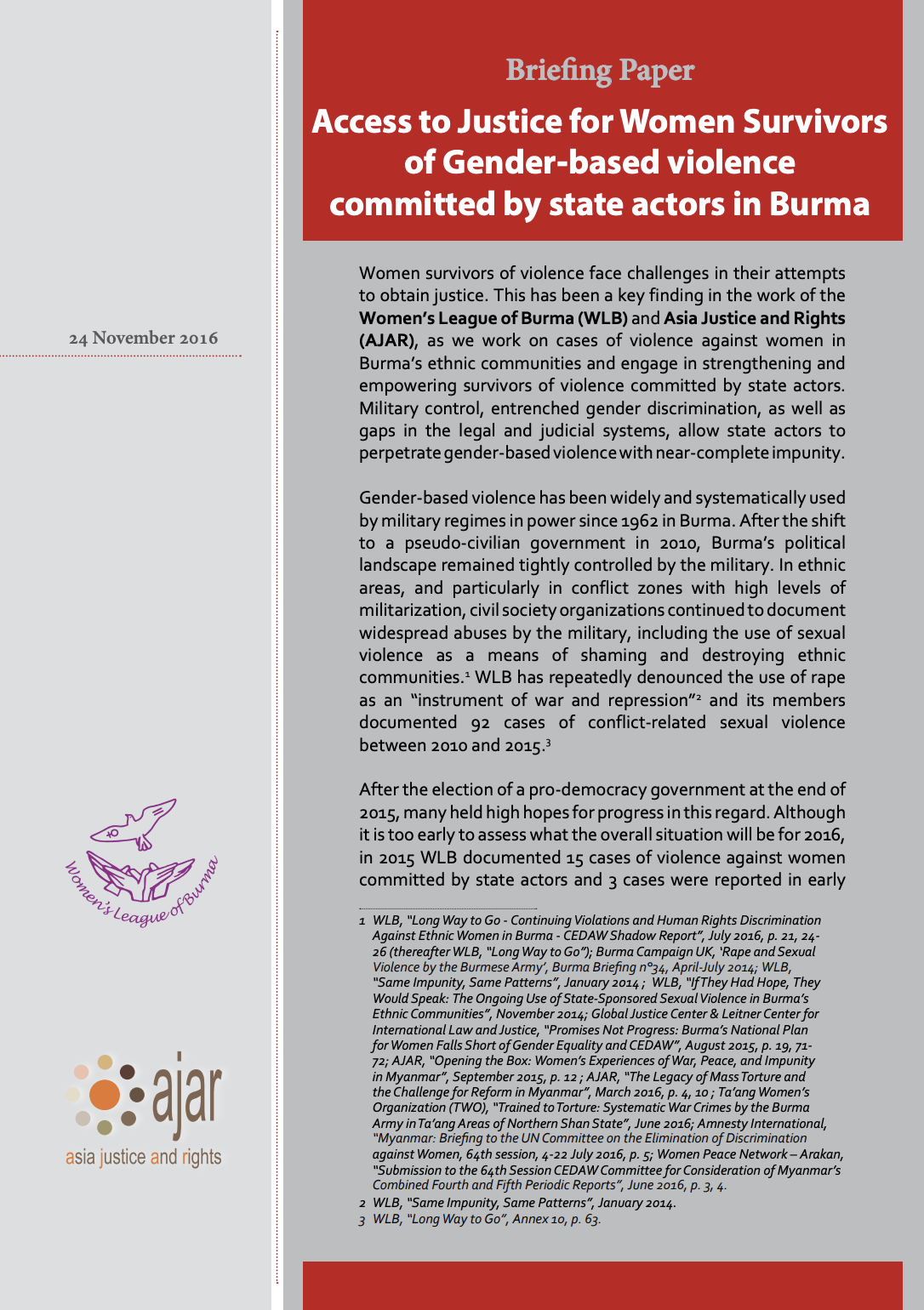Women survivors of violence face challenges in their attempts to obtain justice. This has been a key finding in the work of the Women’s League of Burma (WLB) and Asia Justice and Rights (AJAR), as we work on cases of violence against women in Burma’s ethnic communities and engage in strengthening and empowering survivors of violence committed by state actors.
Military control, entrenched gender discrimination, as well as gaps in the legal and judicial systems, allow state actors to perpetrate gender-based violence with near-complete impunity. Gender-based violence has been widely and systematically used by military regimes in power since 1962 in Burma. After the shift to a pseudo-civilian government in 2010, Burma’s political landscape remained tightly controlled by the military. In ethnic areas, and particularly in conflict zones with high levels of militarization, civil society organizations continued to document widespread abuses by the military, including the use of sexual violence as a means of shaming and destroying ethnic communities. WLB has repeatedly denounced the use of rape as an “instrument of war and repression” and its members documented 92 cases of conflict-related sexual violence between 2010 and 2015.
This briefing also allows some concise findings from field documentation on the impact of gender-based violence on women, the role of civil society organization, and the state’s response in giving accountability.
